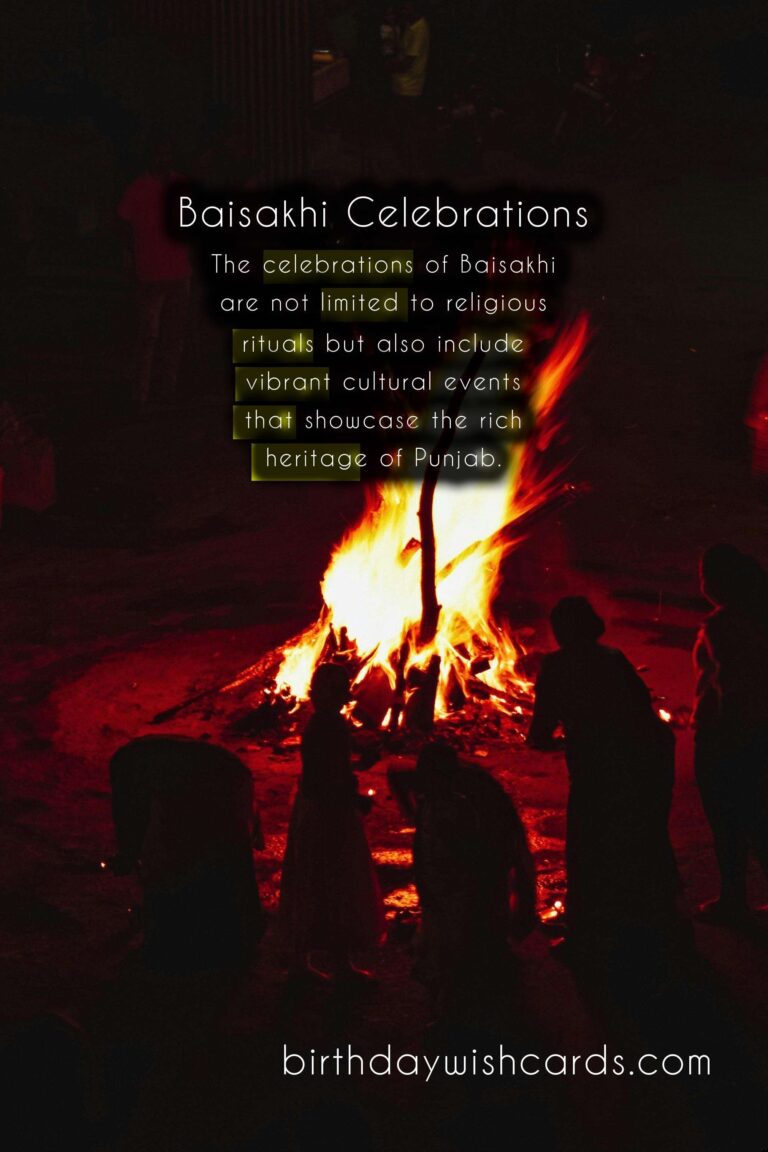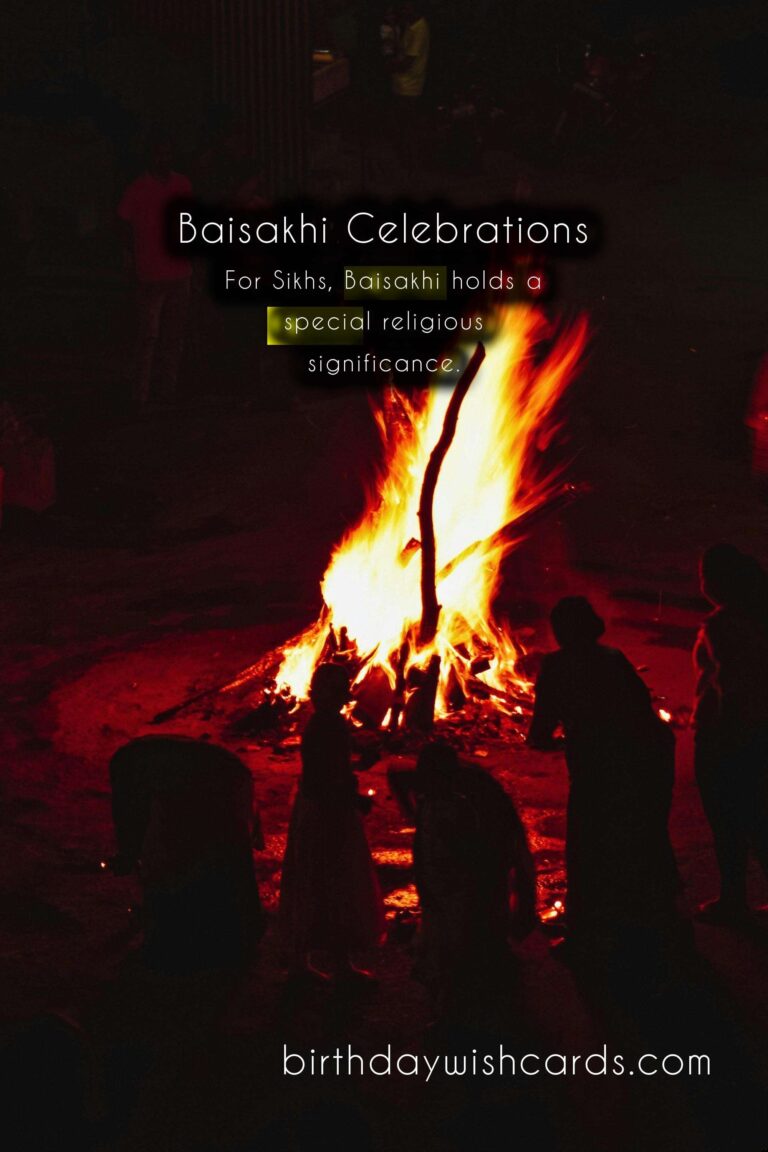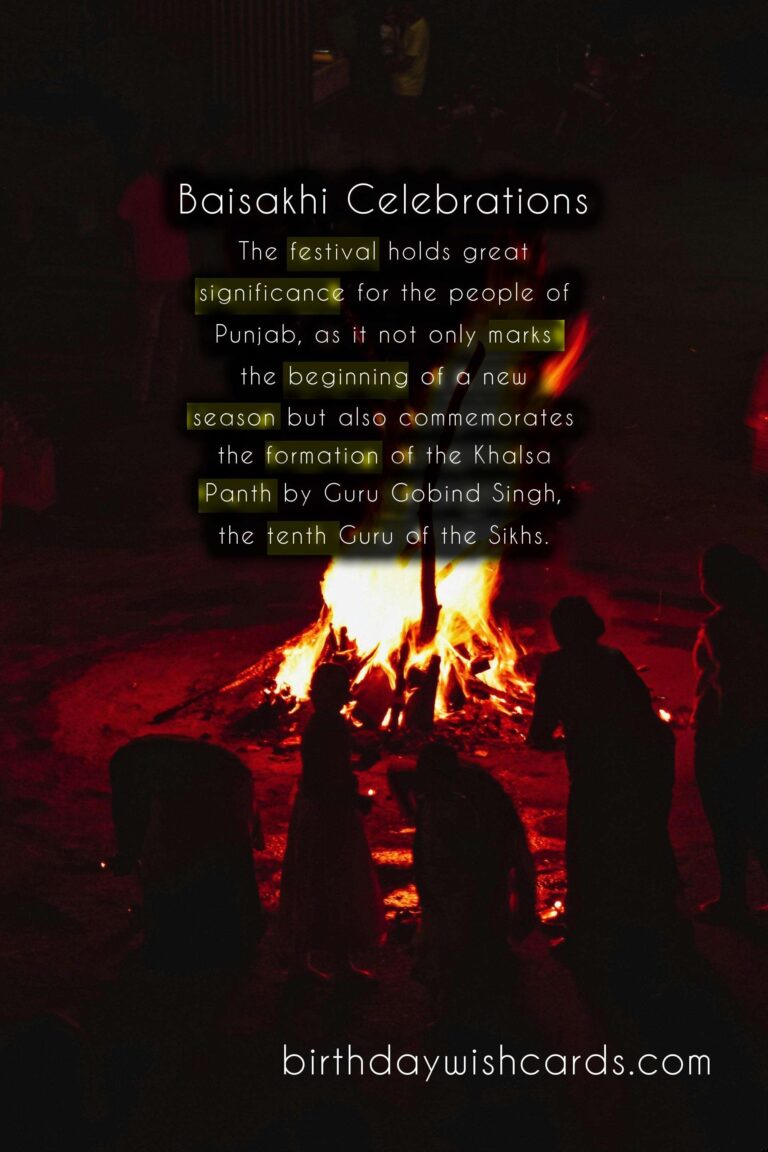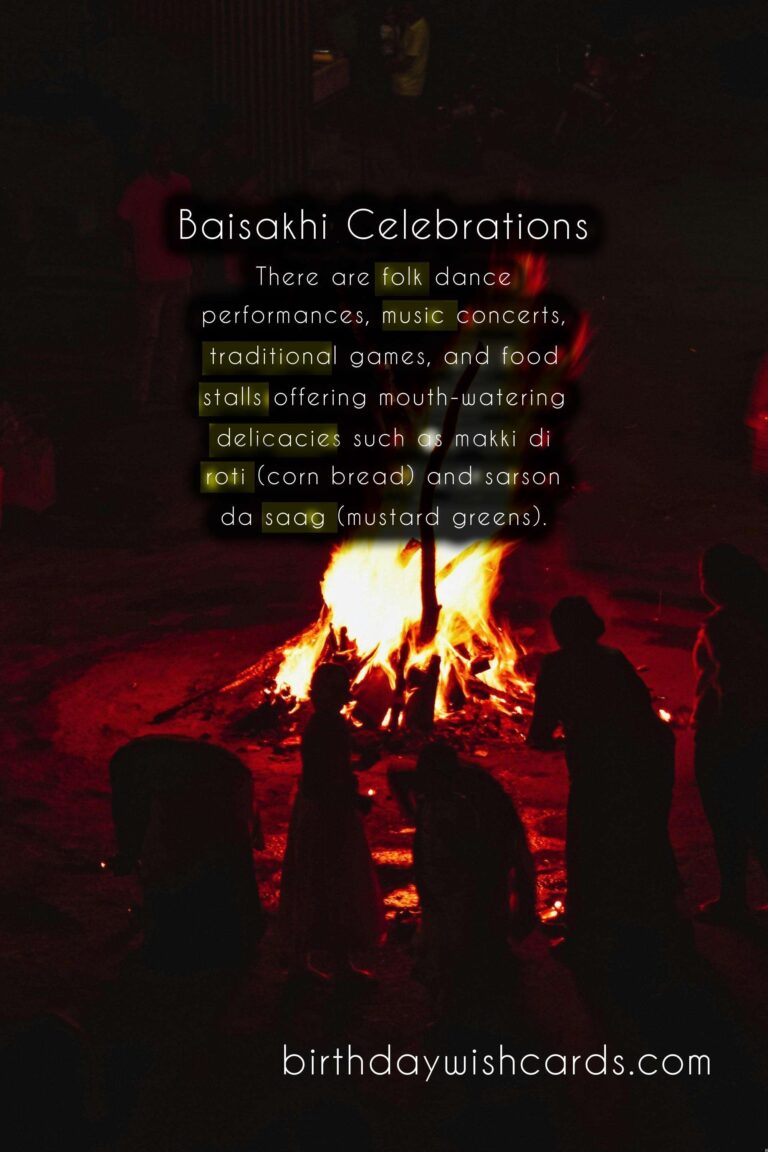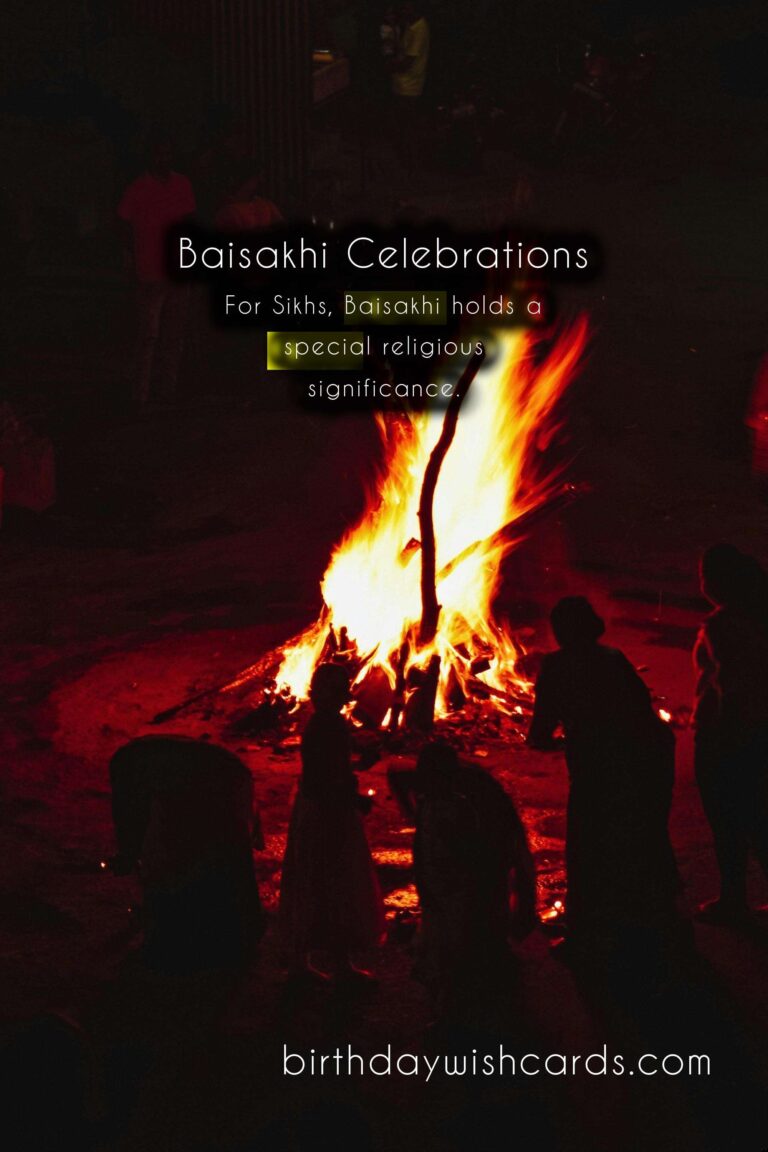
Baisakhi, also known as Vaisakhi, is a major harvest festival celebrated in the northern states of India, especially Punjab, on April 13 or 14. It marks the beginning of the Hindu solar new year and the advent of spring. The date of Baisakhi is determined by the Hindu solar calendar and usually falls on the 13th or 14th of April every year. The festival holds great significance for the people of Punjab, as it not only marks the beginning of a new season but also commemorates the formation of the Khalsa Panth by Guru Gobind Singh, the tenth Guru of the Sikhs. It is a day of religious and cultural fervor, with people coming together to celebrate with traditional rituals, music, dance, and feasts.
The Harvest Festival
Baisakhi is an agricultural festival that marks the celebration of a bountiful harvest. The fields are filled with ripe crops, and farmers express their gratitude to the gods by offering the first harvest to them. The day is also significant for the farmers as they begin plowing and sowing new crops for the upcoming season.
Religious Significance
For Sikhs, Baisakhi holds a special religious significance. It was on this day in 1699 that Guru Gobind Singh founded the Khalsa Panth, a community of devout followers who were initiated into the Sikh way of life. The Guru baptized the first Five Khalsas on this day, and since then, Baisakhi has been celebrated as a sacred occasion in the Sikh community.
Cultural Celebrations
The celebrations of Baisakhi are not limited to religious rituals but also include vibrant cultural events that showcase the rich heritage of Punjab. People dress up in traditional attire, with men wearing colorful turbans and women donning brightly embroidered suits. They visit Gurudwaras (Sikh temples) and pay their respects to the holy book, the Guru Granth Sahib, and participate in prayer services and processions.
Baisakhi Fair
The Baisakhi fair, also known as Baisakhi Mela, is a major attraction of the festival. The fair is organized in many places across Punjab and features an array of cultural and recreational activities. There are folk dance performances, music concerts, traditional games, and food stalls offering mouth-watering delicacies such as makki di roti (corn bread) and sarson da saag (mustard greens).
Baisakhi, also known as Vaisakhi, is a major harvest festival celebrated in the northern states of India, especially Punjab, on April 13 or 14. It marks the beginning of the Hindu solar new year and the advent of spring. The date of Baisakhi is determined by the Hindu solar calendar and usually falls on the 13th or 14th of April every year. The festival holds great significance for the people of Punjab, as it not only marks the beginning of a new season but also commemorates the formation of the Khalsa Panth by Guru Gobind Singh, the tenth Guru of the Sikhs. It is a day of religious and cultural fervor, with people coming together to celebrate with traditional rituals, music, dance, and feasts. For Sikhs, Baisakhi holds a special religious significance. It was on this day in 1699 that Guru Gobind Singh founded the Khalsa Panth, a community of devout followers who were initiated into the Sikh way of life. The celebrations of Baisakhi are not limited to religious rituals but also include vibrant cultural events that showcase the rich heritage of Punjab. The Baisakhi fair, also known as Baisakhi Mela, is a major attraction of the festival. There are folk dance performances, music concerts, traditional games, and food stalls offering mouth-watering delicacies such as makki di roti (corn bread) and sarson da saag (mustard greens). 
